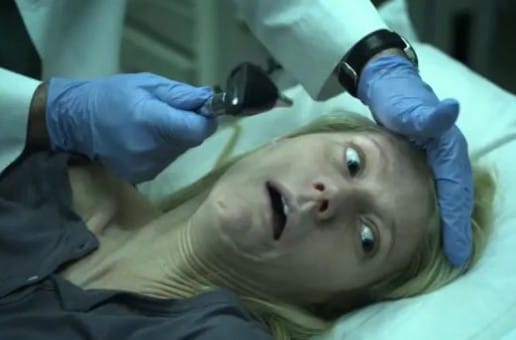“Change begins with a whisper”
A controversial theme gives way to a resolutely feel-good film

The Help
Director Tate Taylor Screenwriters Tate Taylor, Kathryn Stockett (novel) Cast Viola Davis, Octavia Spencer, Emma Stone
Here is this year’s answer to The Blind Side. A feel-good movie that looks at controversial issues involving white guilt and somehow ends up being the year’s most watchable, straightforward films. The only difference is that if any of the cast for The Help do score some awards for their performances, similar to what Sandra Bullock managed to swing in 2010, the women of The Help would actually deserve the shiny statuettes.
The complex issue The Help deals with is racism, and the idea of hired help in 1960s America – or more specifically, the use and treatment of black maids with the shockingly popular term “separate but equal” being used to segregate black Americans. The help, required to cook, clean, shop and raise children for their white, superior bosses, do so to make ends meet. Condescending tone, demeaning gestures and verbal abuse are commonplace, but to earn 95 cents per hour, these women work morning, noon and night, in a society that refuses to fully embrace them.
Aibileen Clark (Viola Davis) has raised and parted with more than a dozen children. Having lost her own child not too long ago, she finds it ever more painful, and the discrimination she faces from a household she dedicates herself to (she even has a separate toilet because the owners fear they will catch some unknown disease) is unconscionable in our eyes, but she accepts it since she has faced this kind of behaviour every day. Minny Jackson (Octavia Spencer) is a maid whose frank words and bold attitude have garnered her a reputation for being difficult. Minny’s boss, the evil Hilly Holbrook (Bryce Dallas Howard), is a nasty piece of work who poisons her suburban neighbourhood with her snobbish, arrogant words. Seeing the maids’ everyday struggle and deciding to do something about this is Eugina “Skeeter” Phelan (Emma Stone), a brave young graduate who wishes to write a book chronicling the daily hardship faced by the hired help. A lot of people around her seem to be ignoring the racial inequality she so clearly sees, including her own mother, Charlotte (Allison Janney).
Are white people evil for employing black maids? The film is correct in showing us that not everything can be summed up that simply. Sure the character of Hilly Holbrook, the film’s main antagonist, is drawn with a hint of comical caricature, but the rest of the cast represents something more complicated, and the white employers are far from hateful.
There is a cloud of mystery created as Skeeter discovers her beloved childhood maid, Constantine (the invaluable Cicely Tyson), has simply disappeared. Her mother refuses to give her a straight answer. When we finally do see what really happened, it turns into one of the most heart-breaking scenes in the film, with unforgettable performances from Janney, Stone and Tyson, especially.
Davis, who in supporting roles has been consistently excellent no matter what genre, gives an even more stirring performance as she is given a bigger part. She is always so full of love and is more than committed – she is good at her job, too, as she takes care of those around her with much warmth and compassion. Minny is someone who will generate more laughs, with Spencer delivering that right mix of tough, no-nonsense woman whilst showing empathy to those she deems deserving.
Minny ends up with a new boss, and it turns out that Celia Foote (Jessica Chastain) is the polar opposite of Hilly. Celia is a cheerful but clueless and insecure housewife who is desperate to please her well-off husband. She and Minny bond, and as that unlikely friendship develops, the audience also learns that white people have difficulties of their own, and seeing Spencer lower her defense to someone she never thought would be her “equal” is a change grasped well by the otherwise straight-talking, hilarious Spencer. And Chastain, who is having one heck of a year with a long line of impressive performances stacking up to her glowing resume, can count this one in too.
Sure, it is undeniably too neat; but this is a feel-good movie, which is why everything is so tidy and the director (Tate Taylor) refuses to get his hands dirty. The script is somewhat restricted in its portrayal of a wider community, and rushes into tying up the loose ends with a convenient, feel-good set of answers. But the important thing is we care about the characters – black or white, discrimination is wrong, and many heart-felt, uplifting scenes show us this and its message could not be clearer.







